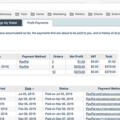U.S. home values rise to record $29.2 trillion, Fed says
The value of all U.S. owner-occupied homes increased to a record $29.2 trillion in the third quarter, according to a Federal Reserve report known as the Flow of Funds.
That was a gain of 4.2% from a year earlier, the slowest annualized increase since 2012. The collective value of U.S. homes is now 21% higher than the bubble peak reached in 2006. Once that bubble popped, it was a decade before values recovered to the same level.
Mortgage rates tumbled through most of 2019 as the American economy showed signs of softening and investors worried about the fallout from trade wars. The average U.S. rate for a 30-year fixed mortgage was 3.72% last week, compared with 4.51% of the year-earlier period, according to Freddie Mac.
Lower mortgage rates support continued gains in home values, which are based on what comparable homes sell for, because cheaper financing means people shopping for homes qualify for higher-balance mortgages and can bid more for properties they want.
The Fed’s tally of home values for all U.S. residential real estate, whether occupied by homeowners or not, was $32.9 trillion, the report said.
As home values rose in the first quarter, so did homeowner equity, meaning the worth of a home compared to its mortgage. American’s owned $18.7 trillion of their homes, giving them a 64% equity stake, the Fed report said. In 2017, the equity stake was 62.5%, the Fed data showed.
In 2019, home prices rose 5.2% from a year earlier, Fannie Mae said in a Dec. 23 forecast. That was a slower pace than 2018, when the gain was 6%, the mortgage financier said.
This year, prices probably will gain 4.1%, the forecast said. Fannie Mae’s price predictions are based on the Federal Housing Finance Agency’s Purchase-Only Index, which measures changes in properties purchased with conventional loans backed by Fannie Mae or Freddie Mac.






